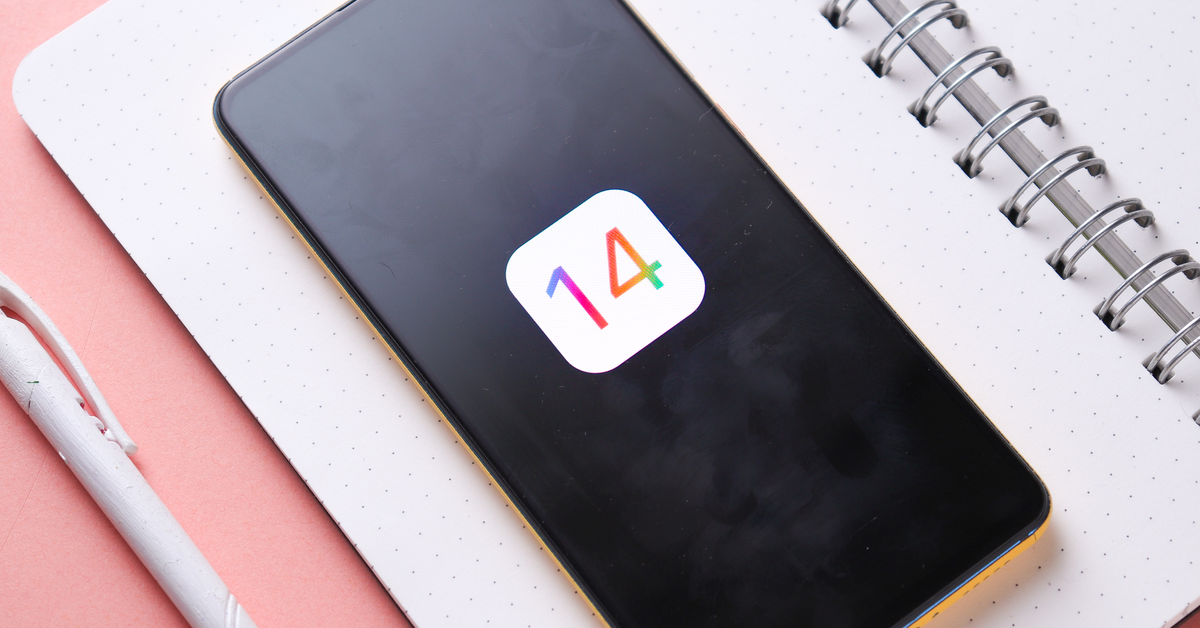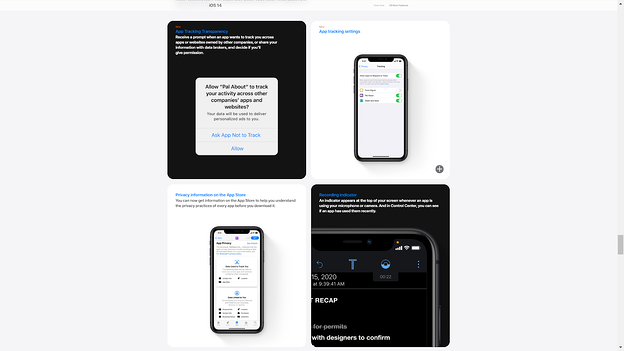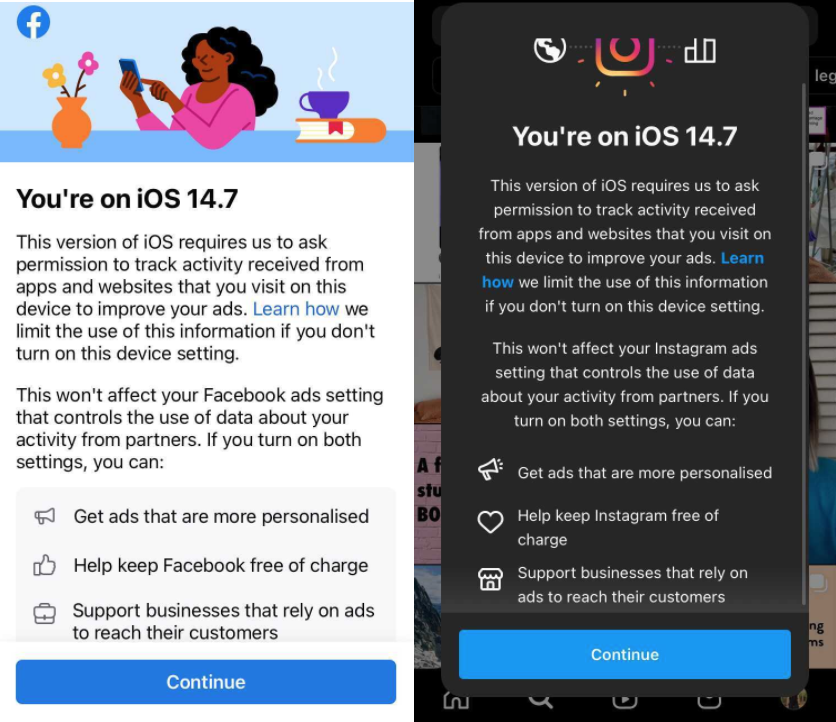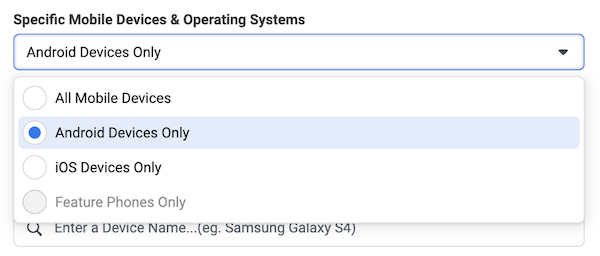What the iOS 14 Update Means for Your Facebook Marketing Strategy 


If you’re a marketer or a business owner, make no mistake: Apple’s iOS 14 affects you.
Apple’s iOS 14 update has been a hot topic and catalyst for a lot of fast talk in the digital space in 2021. But this isn’t just the usual update to Apple’s user interface. This year, Apple has introduced a number of app policies geared towards privacy — including changes to the way users are targeted and tracked by publishers.
But how does it relate in particular to Facebook advertising? Given the effectiveness of Facebook’s ENTIRE advertising platform is built on targeted advertising and data collection, the impact is pretty huge. With less data, advertisers are going to change the way they market, and track the impact of Facebook Ads. And while iOS 14 isn’t a death knell for your Facebook advertising, you’ll have to react, adapt and adjust if you want to keep getting the most out of your social media marketing and advertising ads on Facebook.
That’s what we’re here to help you do today. In this post, we will:
- Break down exactly what the iOS 14 update entails.
- Clarify how it will affect your Facebook Ads.
- Prepare a game plan and strategy in response to the update.
How does the iOS 14 update affect your Facebook ads?
Before we jump into the impacts of the latest iOS update on Facebook Ads, let’s take a look at exactly what the iOS 14 update entails.
“Privacy is a fundamental human right and at the core of everything we do. That’s why with iOS 14, we’re giving you more control over the data you share and more transparency into how it’s used.”
In a nutshell, Apple is taking more steps to improve app tracking transparency by granting users the ability to opt out of in-app targeting or tracking first in its iPhones, then across the broader Apple product portfolio. They’re doing this by changing how app developers access one of the most important identifiers on Apple devices: the IDFA.
What is the IDFA?
The IDFA, or “Identifier for Advertisers”, is a persistent ID is used by mobile devices running an Apple operating system, such as iOS or iPadOS. When this is shared with app developers, ad platforms or other mobile measurement providers, the IDFA supports the targeting and delivery of personalised content. It also gives advertisers the ability to cap the frequency of ads, attribute app installs to different ad platforms, and measure their campaign performance.
IDFA is often used together with cookies to construct a rich identity for any given user and support extremely personalised ad targeting.
How iOS 14 affects Facebook marketers
With iOS 14, Apple is completely changing how app developers like Facebook are allowed to access the IDFA.
Previously, IDFAs were available to the majority of developers and users had to opt-out if they didn’t want their IDFA to be shared or to allow tracking. Now, users have to opt IN for an app to access their IDFA — which in turn, means that fewer IDFAs will be available to Facebook, Instagram, and other digital marketing tools.
In essence, they’ll get a prompt like this one:

Image source: Apple
To put it into perspective: currently, almost 70% of iOS users share their IDFA with app publishers. After Apple’s latest update, this number is expected to drop to between 10% – 15%.
This is similar to the cookie tracking pop-ups that websites implemented a few years ago in response to GDPR requirements:
Image source: Termly
In essence, iOS 14 will make it near impossible for app developers to use the IDFA as a persistent identifier for users with iOS devices. Without this, we get a domino effect:
- With only a limited ability to track user behaviour, Facebook’s Pixel will become less effective. This impacts a ton of Facebook Ad features, from conversion tracking to remarketing.
- Targeting will be weakened, which means it’ll be more challenging to develop hyper-personalised ad copy and creative that speaks specifically to your target audience.
- Less targeting options, less effective remarketing, less personalisation and less accurate conversion tracking = more wasted ad spend.
What’s more, iOS 14 will also affect a number of specific services for Facebook advertisers:
Changes to in-app advertising
Alongside Apple’s iOS 14 update, Apple has also introduced SKAdNetwork API to increase the privacy of users who install mobile apps from the App Store. SKAdNetwork API will restrict, aggregate or delay all app event data for Facebook app advertising on iOS 14 devices.
This includes updates like:
- Event data for a single Facebook Ads account will be restricted to nine campaigns and five ad sets per campaign
- Lift measurement won’t be available for iOS 14 App Install and App Events campaigns.
- Event reporting will be delayed for up to 3 days after a user installs an app.
Changes in mobile web advertising
Alongside SKAdNetwork, Apple has also introduced the PCM (Private Click Measurement) protocol. This update restricts the data that brands and app developers can access across different platforms or in different geographical locations.
For example, let’s say a user sees an ad on Instagram, clicks on that ad, and hops on to the brand’s website to make their purchase. With PCM, this event is lost and the sale wouldn’t be properly attributed to Instagram. A similar thing would happen to shoppers who see an ad for a global brand, but get redirected to the local version of their website (i.e. an Australian user seeing an ad by Nike, then getting directed to the Australian version of the Nike website).
Facebook has already announced plans to release the Aggregated Event Management tool to counteract these issues; however, it’s important to be aware of this as it may affect other advertising platforms as well.
Changes to optimization and targeting
Apple will also be introducing an eight-pixel event cap per domain for campaign optimisation. This means advertisers will need to prioritise the eight most important events in the buyer journey to optimise towards. Thankfully, this only applies to campaign optimisation. iOS 14 won’t limit the number of events that can be tracked for reporting and audience creation purposes.
Changes to measurement
iOS 14’s new default attribution window means that attributions for all new or active ad campaigns will be at the ad set level, not the account level. The 28-day click-through, 28-day view-through and 7-day view-through windows also won’t be supported for active Facebook Ads campaigns.
Facebook will instead support the following windows:
- 1-day click
- 7-day click (default)
- 1-day click or 1-day view
- 7-day click or 1-day view
This makes measuring the effectiveness of campaigns more complicated and challenging as it’ll contribute to under-reporting on organic and paid channels. On top of this, advertisers can expect to see an increase in dark social traffic, where people privately share content via social media. Last but not least, PCM will also delay the ad reporting data from iOS 14.5 users by up to three days.
Business manager tool setup
To go alongside all these updates to reporting and attribution, we can expect to see a pretty significant update in the Facebook Business Manager interface. Because Facebook can’t have a separate tool for Android and iOS, it’s going to have to cater the entire Business Manager tool to accommodate for the latest Apple updates.
There isn’t much out there yet on how the design will change, but rest assured that we’ll be looking at a very different Facebook Business Manager in the future.
Facebook’s Response to the iOS 14 update
It probably comes as no surprise that Facebook is worried about iOS 14. A massive 79.9% of all Facebook users only use the app on their mobile phone — and you can bet a good portion of these are using iOS devices with the new update. Given iOS 14’s new opt-in model and increased privacy concerns after documentaries like The Social Dilemma, chances are the majority of users will actively choose not to be tracked.
Facebook has publicly responded to Apple’s decision by saying that the update will negatively affect small businesses, many of which use Facebook as a cost-effective means to target their audience online.
According to Facebook:
“We believe that free, ad-supported businesses have been essential to the growth and vitality of the Internet, and that personalised ads and user privacy can coexist. We support proactive privacy measures and data transparency, but we don’t agree with Apple’s policy changes…Apple’s policy will make it much harder for small businesses to reach their target audience, which will limit their growth and their ability to compete with big companies. Case in point, our studies show that when running ads on the Facebook family of apps to drive sales on their websites, small businesses saw a cut of over 60% of their sales, on average, for every dollar they spent when they weren’t able to use their own data to find customers on Facebook.”
Despite this, Facebook is one of the biggest tech giants out there, which means it’s already got a plan of action in place. Facebook will be introducing a number of ways to prepare and mitigate the impact of Apple’s new policy, including changes to the reporting process and the new Aggregated Event Measurement tool. Keep in mind that this is just the start, with more updates planned to come over time.

How to plan around the iOS 14 update
There’s no way around it: the iOS 14 update will change Facebook Ads as we know it. However, this isn’t necessarily a bad thing if you have a clear social strategy and game plan. If you plan and prepare, you can work around the updates and ultimately ensure that you continue to get the most out of your advertising and marketing efforts on Facebook.
So what actions can you take now to minimise the impact and maximise your conversions despite the roll out of the iOS 14 update? We’ve rounded up five important steps to take NOW if you want to get ahead, survive and thrive with Apple’s new changes.
Verify your domains with Facebook
If you haven’t done so already, verify your domains with Facebook now. This means you can officially claim ownership of your domain in Business Manager, which in turn allows you to edit your links and other content.
There are three ways you could go about verifying your domains:
- Add a DNS TXT entry to your DNS record to confirm that you own a particular domain
- Upload an HTML file (provided by Facebook) to your web directory
- Add a meta tag to the <head> section of your domain home page
Facebook goes into more detail on how to verify a domain on their official Facebook for Developers page.
Decide which eight events for conversions you’ll track
With the eight-pixel event cap, you’ll need to get incredibly granular on which actions are the most important throughout the customer journey. For each domain, you’ll be able to choose eight standard events and custom conversions to optimise — so it’s a good idea to get started now.
Facebook has provided a few best practices to help marketers figure out which events to track:
- Choose events that will provide the most valuable data to your business. These should be the eight conversion events that play the biggest role in business outcomes, whether it’s lead generation or direct sales and revenue.
- Consider optimising for upper-funnel objectives like views or link clicks, as landing page views aren’t subject to the eight-pixel cap.
- Add more value sets to event configuration to improve return on ad spend (ROAS). If you switch on value optimisation, you can use up to eight event slots in your configuration. Facebook recommends using them all to increase the performance and reporting accuracy of ROAS.
Compare the relationship between 28-day to 7-day attribution
Following the iOS 14 update and its changes to the attribution window, it’s only a matter of time before the 28-day attribution feature is removed from the social media giant altogether. Before this happens, it’s a good idea to calculate the impact that this change in attribution window will have on your ads.
Given the fact that reporting will change to 7 days post-click and 1-day post-view, you’ll need to manually keep an account of the remainder of sales that happen through the remaining attribution window (i.e. from day 8 to day 28).
Exclude iOS devices from campaigns with a conversion objective
Although this one isn’t a long-term solution, it’s a good way to get an insight into the type of tracking you can expect once the latest updates take effect. You can do this by switching your conversion-oriented campaigns from “All Mobile Devices” to “Android Devices Only”:

Rethink the way you build your audiences
One of the most important shifts in iOS 14 is that advertisers won’t be able to access third-party data in the way they used to. With the number of custom audiences generated from pixel-based strategies expected to shrink, first-party data is king.
This is the moment to reflect, evaluate, and reframe how your business collects data and how you reach your audiences. By acquiring email addresses directly from your customers through internal (privacy-compliant) data mining and lead generation campaigns for prospects, you’ll still be able to build custom or lookalike audiences in Facebook Ads.
Why partner with a specialist performance marketing agency?
If you’re not working with a specialist performance marketing agency, it’s time to do so. If you are, now’s their time to shine. Your agency should be helping you to minimise the damage and update everything needed in your Facebook Ads account, so you can continue to get the most out of your ads once the updates hit. We’re talking about all the nuts and bolts, from verifying your domain to helping you prioritise your event tracking, implementing additional tracking and attribution methods, and improving your first-party data collection efforts.
More than ever, it’s also important to work with a Facebook Preferred Marketing Partner like OMG. These partners are the first to know of any changes or updates to the Facebook platform, and Facebook also works directly with their partners to help them prepare for major changes like iOS 14. In short, with the right specialist digital marketing agency by your side, you should be able to navigate this change AND any others in the future, while still maximising your Facebook marketing strategy and ROAS from the platform.
The future of Facebook Ads with Apple’s iOS updates
We can’t overstate this enough: Apple’s iOS 14 isn’t the death of Facebook Ads. It’s an inflection point that will change the way that marketers advertise on the platform, and the ones that succeed are the ones that are prepared and work with the changes — not against them.
With billions of monthly active users in 2020, Facebook and Instagram are still two of the most effective platforms to reach your target audience. What’s more, the company has already said they are working on adjustments to their advertising platform in response to Apple’s new app tracking transparency updates.
Here’s the thing though. This IS a change, and advertisers ARE going to have to adapt. The first step is to try and minimise the impacts of the iOS 14.5 update on your existing efforts. After this, it’s time to start testing and attempting to rely less on the Facebook pixel, collect more first-party data, and even explore other advertising channels like Google or LinkedIn.
Emerge stronger from iOS 14
Ultimately, this isn’t the year to hide your head in the sand. It’s an opportunity to make data privacy your competitive differentiator and evolve your marketing efforts for the future.
If you’re ready to embrace the future of Facebook Ads, we’re here to support you every step of the way. As a Facebook Preferred Partner, we’ve been vetted for our expertise in delivering results on the platform AND we’re the first to know of any updates Facebook makes to its platform. This means you get the inside scoop and can use this to get more out of your Facebook Ads, both now and in the future.
Here’s the icing on the cake: it’s completely FREE to get started. Get in touch with us below to request your free Facebook audit, and we’ll tell you exactly how your ads currently stack up and how the iOS 14 updates will impact your performance in the future. You’ll also receive a complimentary 6-month marketing strategy and game plan to help you navigate the latest changes and emerge stronger than before.









